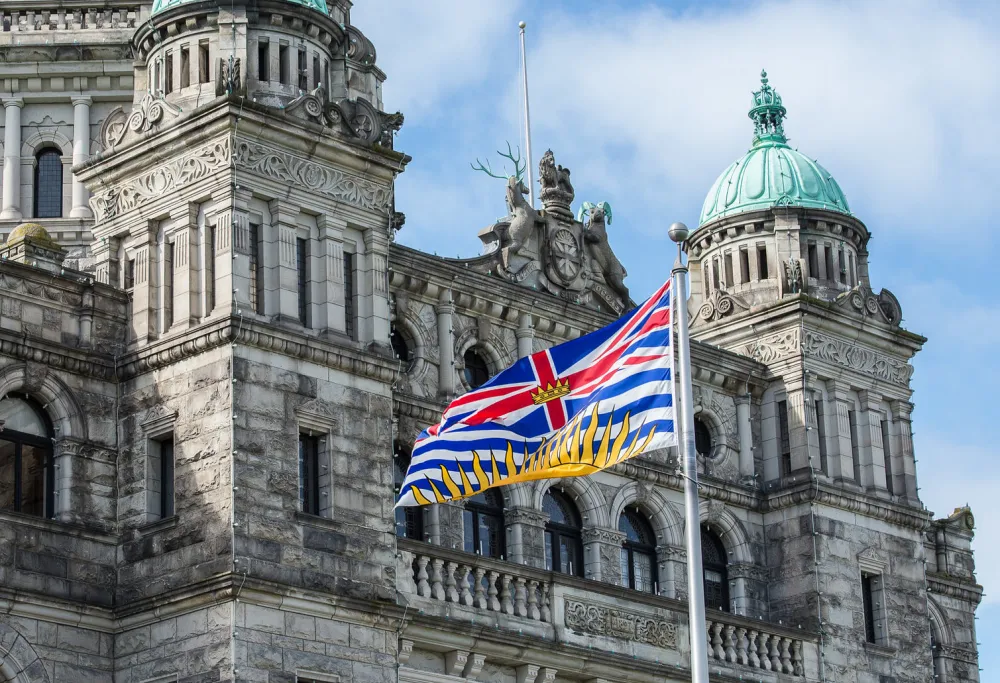Following a devastating summer, the government of British Columbia’s long-awaited upgraded climate plan will face intense scrutiny. Expected in October, it could position B.C. as a model for the rest of Canada — if it sets the province on track to achieve a net-zero economy by 2050.
To do so, it will need to do two things: focus on five high-impact policies, and provide clarity on the role of fossil fuels. And it will need to embody the findings and recommendations in two recent international reports that were explicit about the role of fossil fuels in driving climate change.
The latest annual report from the Intergovernmental Panel on Climate Change (IPCC) warned that climate change is widespread, rapid and intensifying, and called for strong and sustained reductions in greenhouse gases.
The International Energy Agency’s (IEA) Net Zero in 2050 report showed the kind of policies needed to limit warming, including no approval of new oil and gas fields after 2021, a 75 per cent reduction in methane emissions by 2030, no new sales of fossil fuel boilers by 2025, and a 100 per cent zero-emission vehicle sales mandate by 2035.
As leaders and negotiators head to the 26th UN Climate Change Conference (COP26) in November, there is an expectation they will increase their ambition and action to tackle climate change. Subnational governments have an important role to play. What B.C. determines as its path to meeting 2030 commitments could set an important example on this global stage.
Over the past few years, the B.C. government has put in place a solid foundation to address current and future impacts of climate change. The province was the first in North America to establish carbon reduction targets for specific sectors, including for the gas sector (33 per cent to 38 per cent by 2030) and the buildings sector (59 per cent to 64 per cent by 2030), and has legislated the target of a 40 per cent greenhouse gas reduction by 2030, and a commitment to deliver a net-zero economy by 2050. The province can embrace the IEA’s Net Zero scenario to set out pathways to reach these legally binding targets.
Prioritize five core climate policies
The upcoming climate plan, then, will need to prioritize five core climate policies: an increased price on carbon pollution, strengthened low-carbon standards for liquid and gaseous fuels, regulations on upstream methane emissions, an accelerated and all-encompassing zero-emission vehicle mandate, and regulations that drive a shift from fossil fuels to electricity in homes and buildings.
These policies would go a long way toward eliminating much of the guesswork in resource planning by B.C. utilities, which, despite acknowledging climate targets, are still not aligning long-term resource plans with what energy-economy models show will be needed in a low-carbon economy. In the midst of a climate emergency, the province needs to give clear direction to utilities, and in particular BC Hydro, to utilize every available tool to accelerate the electrification of buildings and transportation.
B.C. also needs present a clear vision of how the production and export of fossil fuels in the province will be managed going forward. The IEA and IPCC reports are clear: we can no longer afford to waffle when it comes to fossil fuel development and oil and gas emissions. As well as curbing methane leaks from existing gas production and eliminating other sources of upstream emissions, there is no wiggle room in our carbon budget for new large projects that increase emissions like liquefied natural gas. To ensure B.C. meets climate targets, this updated plan will have to reconcile oil and gas development ambitions with the scientific imperative to cut emissions as deeply and quickly as possible.
It is essential, too, that utilities invest only in infrastructure and programs compatible with a net-zero future. This will take courage and require committed financial resources for policy implementation and support for workers and communities.
We are already paying the escalating financial and human costs of climate change. Failure to ramp up the most high-impact policies, and to align electricity production, distribution and use with climate targets, will result in even higher costs for generations to come.
This op-ed was published in the Vancouver Sun on Oct. 20, 2021.








